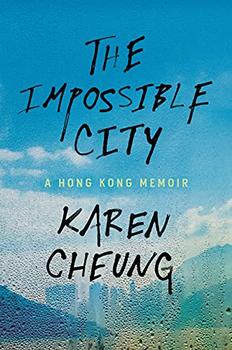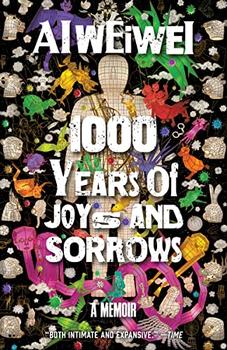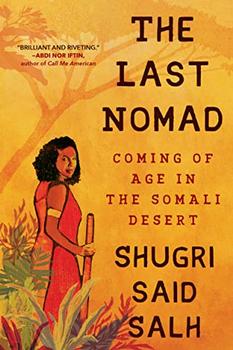Summary | Excerpt | Reviews | Beyond the book | Read-Alikes | Genres & Themes | Author Bio

A Hong Kong Memoir
by Karen CheungWhile reading The Impossible City, I knew that I'd learn a lot about recent protests in Hong Kong, and I did. What I didn't know was that the book would also be an immensely readable account of a life far from mine that still felt familiar.
China ceded the sparsely inhabited island of Hong Kong to Britain in 1842 at the end of the First Opium War. It was returned to China in 1997 with Beijing pledging that Hong Kong would retain its high degree of autonomy and rights for 50 years. Today, Hong Kong, officially known as the Hong Kong Special Administrative Region of the People's Republic of China, is a semi-autonomous region in name only, as the Chinese government controls many, if not most, aspects of social and political administration there.
Over the past 25 years, China has chipped away at Hong Kong's autonomy, and there have been a number of protests, most notably in 2014 and 2019. The 2019 protests in Hong Kong are a theme throughout the book. Those demonstrations were in opposition to proposed legislation permitting anyone suspected of a crime in mainland China to be extradited there. Anti-Chinese activists and other dissenters worried they would be targeted for extradition without due process, and many were concerned about the prospect of facing imprisonment, or worse, in China. Additionally, extradition would be decided on a case-by-case basis, so the population didn't know where the bar was set.
Despite the heavy subject matter, Cheung has a candor and warmth that come through in these pages. The chapters, which read more like separate essays than a cohesive memoir, never feel like lectures. Rather, she gives vivid accounts of her experiences, then connects them to larger social issues. Cheung was born and raised in Hong Kong. She learned English in primary school and attended Hong Kong University, where most classes are taught in English. Torn between journalism and law, she went on to get a law degree but prefers working as a writer. The experiences she describes — whether reminiscing about her grandmother's cooking, detailing her efforts trying to get help for her depression, or talking about her love of seeing live music — could be relatable to anyone, anywhere in the world.
The chapters don't flow chronologically, instead tending to focus on a point in time or a particular issue, such as language, housing, mental health, protest culture and the arts. As a music junkie, I loved reading about all the bands she likes in Hong Kong. I spent a few hours sending my friends links to songs by My Little Airport (only to discover some were already fans).
I recommend keeping a notepad when reading or highlighting terms and references in your e-reader. Cheung explains that she doesn't translate certain terms and doesn't convert currency to dollars because she doesn't want her culture described in Western ways. It's easy enough to use context clues to keep up, but you may want to look up the words later. If you have an e-reader, the occasional Cantonese term can easily be pasted into a search engine. It's also worth taking notes for all the movie, music and book recommendations. Cheung has an encyclopedic knowledge of the arts, and reading this book will give you plenty of new things to explore.
The author collects the transient experiences of her early 20s to introduce some of the housing difficulties in Hong Kong. The government says that the rent is so expensive, and owning an apartment prohibitively so, because there isn't enough land. But Cheung explains that the real problem is corruption: the government is the biggest owner and seller of land, and they profit from selling to developers at an inflated price. That practice is a holdover from colonialist days and results in a city where middle-class citizens struggle to make rent while the elite speculate on real estate. Another result is that the government is now quite dependent on the money brought in by land sales and therefore has no interest in changing the status quo.
The chapter "Twenty-Two Roommates" details six years of Cheung's sharing small apartments with a total of 22 roommates, with several people sleeping on mattresses on the living room floor to defray costs. While these stories reminded me what it is like to be young and adaptable, I couldn't forget the insecurity underpinning all of this. Where else could she go? What if there isn't anywhere?
Reading this, I thought about my own situation. I live in a small town with a big (and growing) university. Right now, cheaply built, overpriced apartment buildings are popping up everywhere. I live in a spacious apartment owned by an elderly landlord who under-charges, but where would I go if something happened to him? Though my situation is not as dire as Cheung's, I could tell we shared a similar angst. Cheung, too, feels sad as big apartment buildings go up, noting almost 8,000 buildings in Hong Kong are over 115 feet. "In a sense, public housing has come to represent a quintessential Hong-Kong-ness, a symbol of the spirit that there is nowhere to go but up," Cheung observes, reflecting on the myth of opportunity in her culture.
In the chapter titled "Through the Fog," she details her experiences with depression and the challenges of seeking help. In the mid-2010s, she writes, there was a student suicide nearly every day, all of which were attributed to academic stress. In Hong Kong's population of seven million people, there are only around 400 psychiatrists. These statistics hit home for me now, after seeing people struggle to get treatment for depression and anxiety during the pandemic.
As a writer and lover of languages, I appreciated her discussion of what it means to write in English vs. Cantonese. Much of Cheung's work, including pieces for the New York Times, is meant to educate Western readers; one journalist suggests she pretend she's writing for a grandfather in Texas. "I learned to write for an imaginary white audience," Cheung explains. She adds that Western news outlets only contact her when there is unrest in Hong Kong, and even then their questions are cursory. I felt a lot of compassion for the author, whose nationality presents difficulties I'm spared. For instance, it's seen as elitist to write in English, and she believes writing in Cantonese shows solidarity with protestors. But writing in English is necessary to attract readers beyond Hong Kong.
I also love that she explored what it means to be an activist, something I've often asked myself. She isn't a fan of so-called "hashtag activism" and calls out people who only ever make social media posts about important issues. Meanwhile, she strives to figure out how to best be involved in the protests, though nothing ever feels like enough. I can relate to the sense of guilt and helplessness at a time when such vital things are happening. Ultimately, I made peace when Cheung did — she asks one of the busiest activists she knows if they ever feel like they've done enough, and they say no.
Cheung has done quite a lot by writing this book. Through her, we're able to humanize a movement and think of those affected by it. We connect more deeply with the issues around us. And we also learn about some fantastic new-to-us bands.
![]() This review
first ran in the March 16, 2022
issue of BookBrowse Recommends.
This review
first ran in the March 16, 2022
issue of BookBrowse Recommends.

If you liked The Impossible City, try these:

1000 Years of Joys and Sorrows
by Ai Weiwei
Published 2022
In his widely anticipated memoir, "one of the most important artists working in the world today" (Financial Times) tells a century-long epic tale of China through the story of his own extraordinary life and the legacy of his father, the nation's most celebrated poet.

by Shugri Said Salh
Published 2022
"I am the last nomad. My ancestors traveled the East African desert in search of grazing land for their livestock, and the most precious resource of all - water. When they exhausted the land and the clouds disappeared from the horizon, their accumulated ancestral knowledge told them where to move next to find greener pastures. They loaded their ...
The single biggest problem in communication is the illusion that it has taken place
Click Here to find out who said this, as well as discovering other famous literary quotes!
Your guide toexceptional books
BookBrowse seeks out and recommends the best in contemporary fiction and nonfiction—books that not only engage and entertain but also deepen our understanding of ourselves and the world around us.